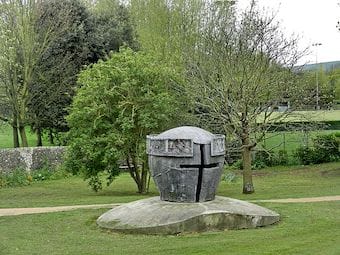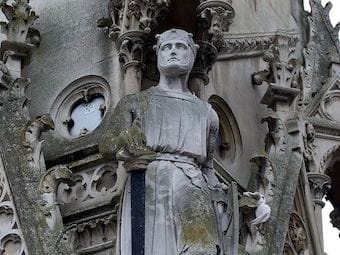In 1215, King John was pressured into signing Magna Carta, a historic charter of rights. Among other promises, he vowed that in future he and his successors on the throne would leave the English Church out of politics, deliver speedy, impartial and equal justice in the courts, respect rights of person and property, and refrain from taxing overseas trade.
The King promised not to place wartime sanctions on businessmen even from hostile nations, unless English merchants had been sanctioned abroad; but once peace came, he would send home foreign mercenaries who posed a public threat. And after undertaking to restore all confiscated property, the King required the barons to respect the Charter’s rights in their own domains too.
117 words


